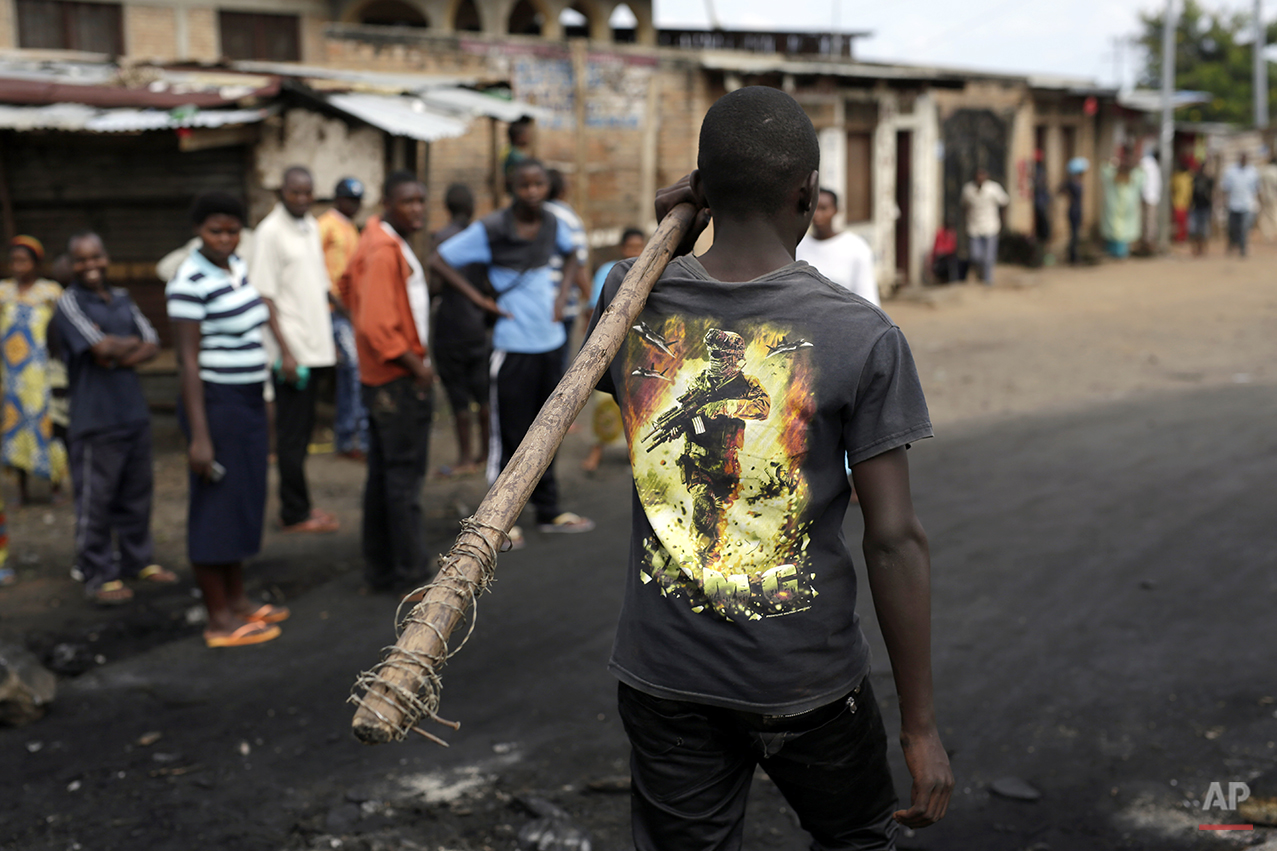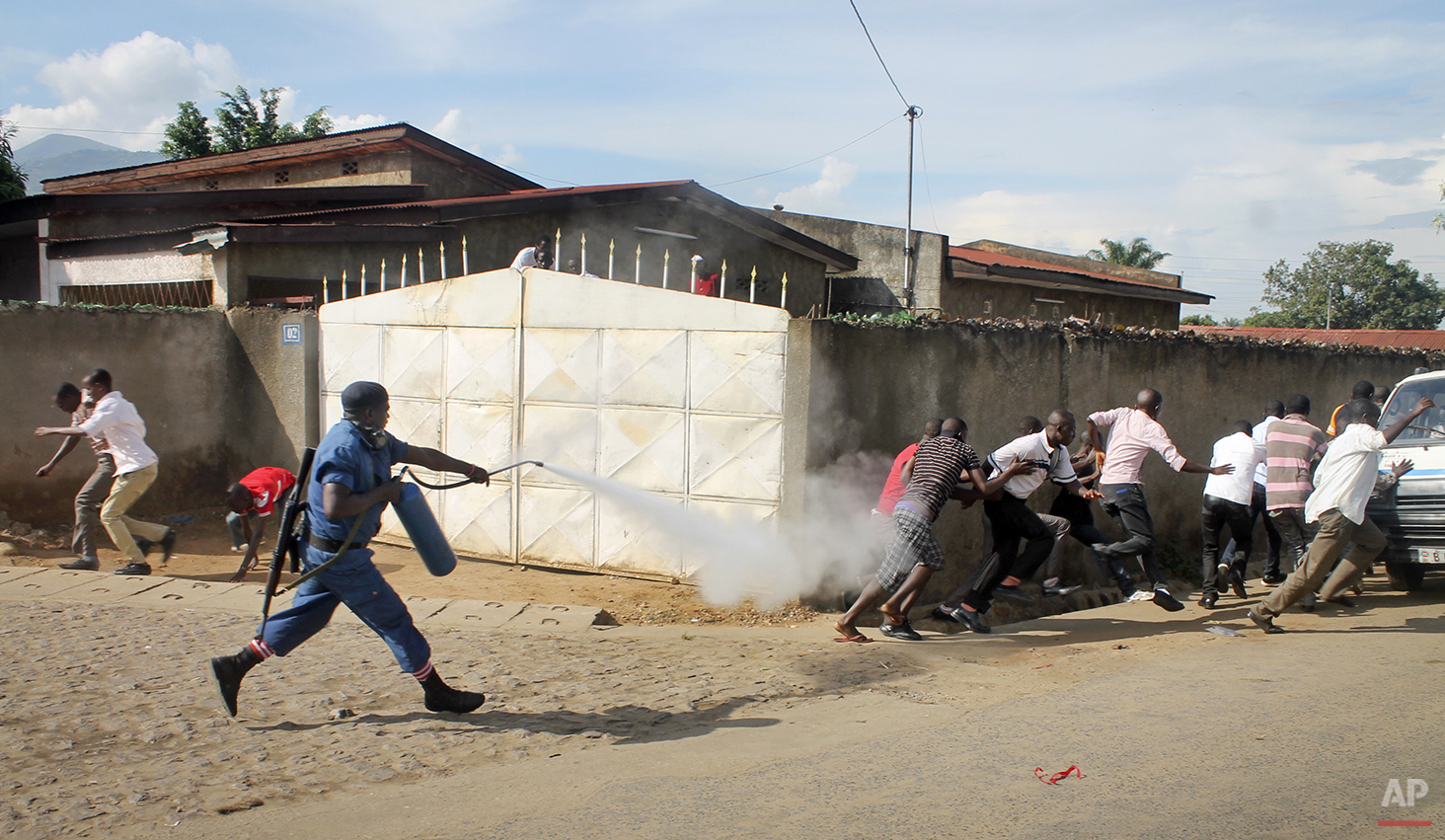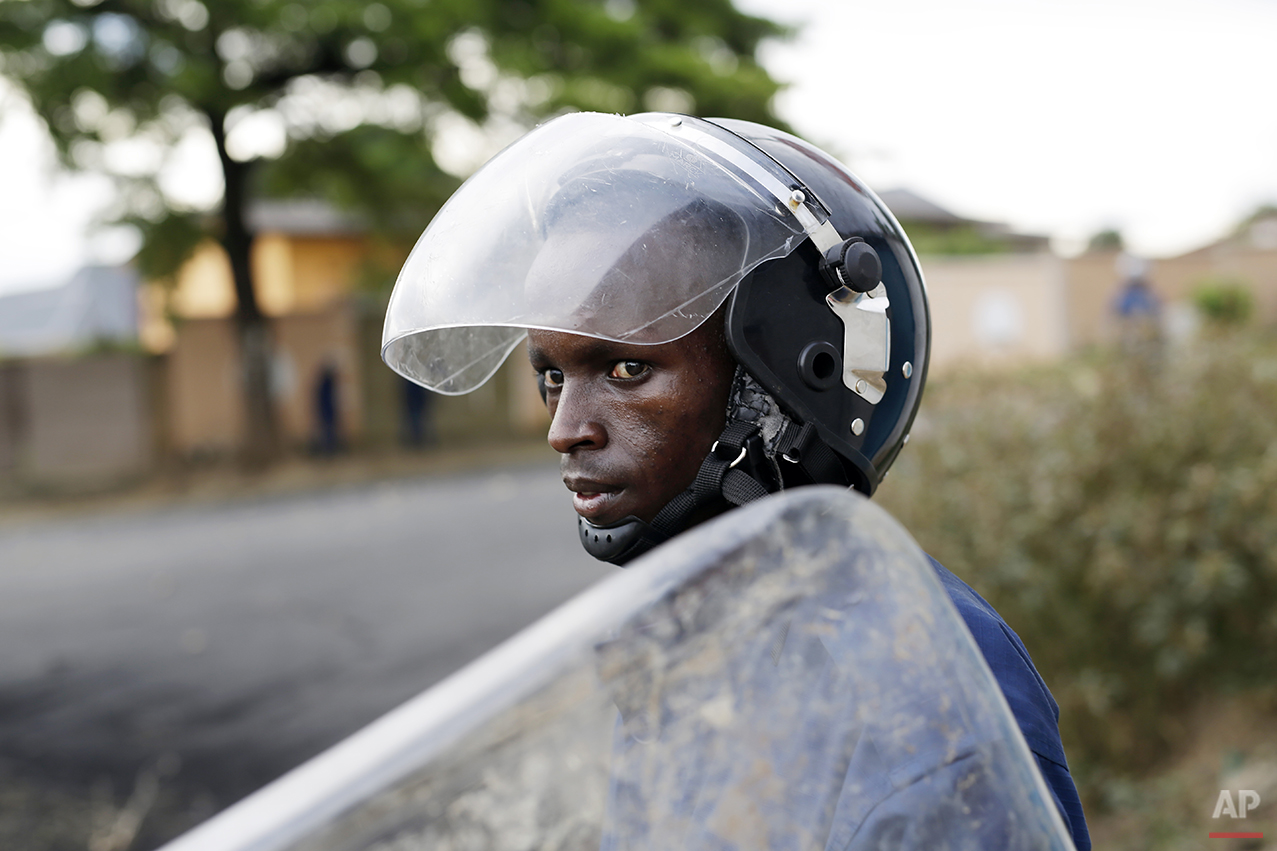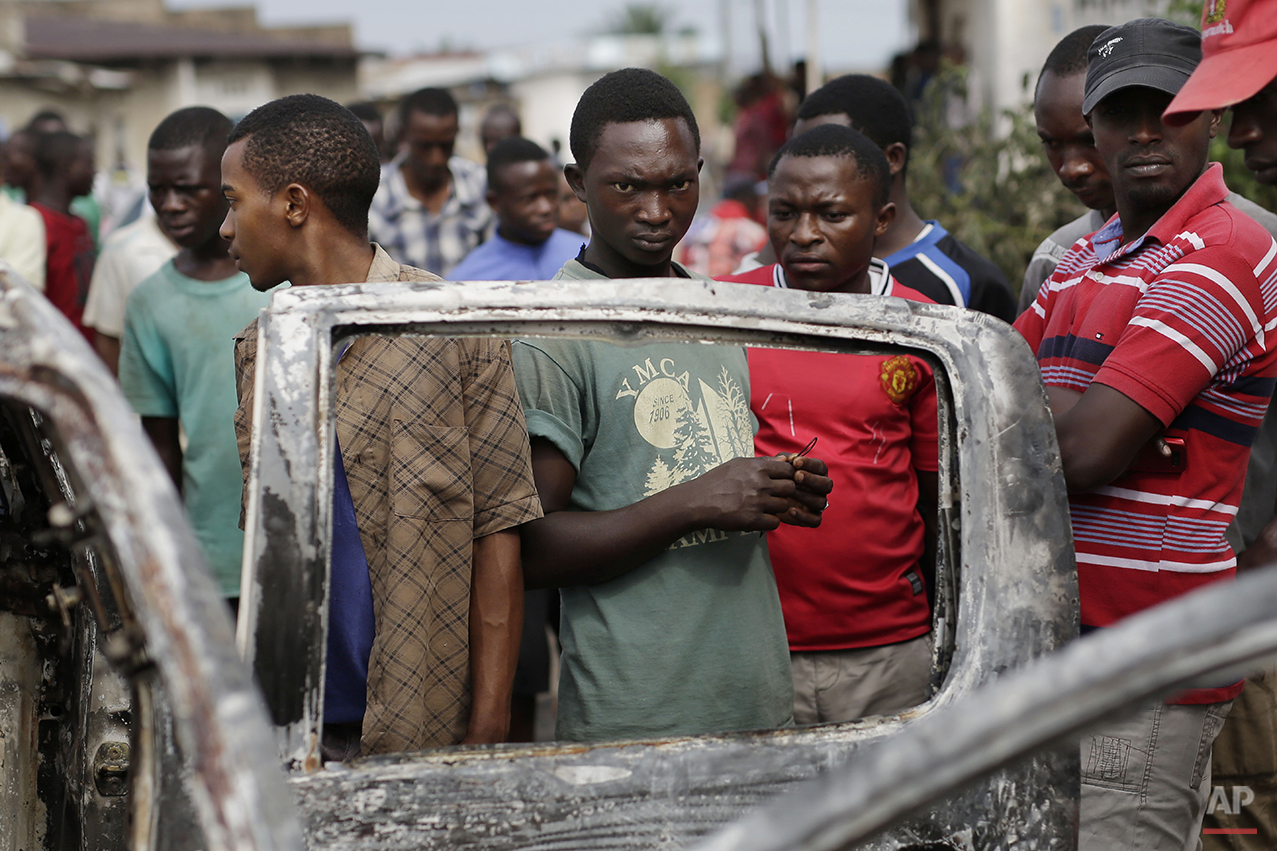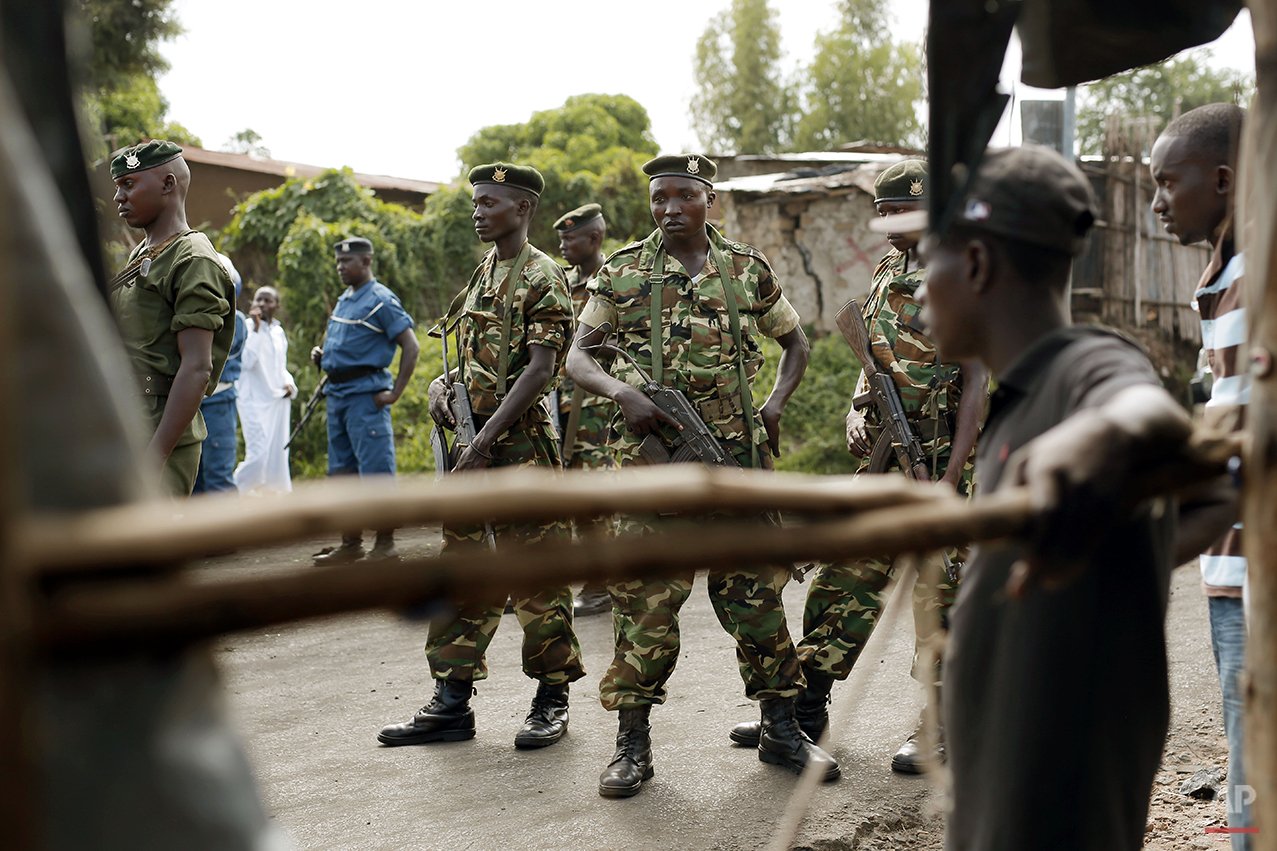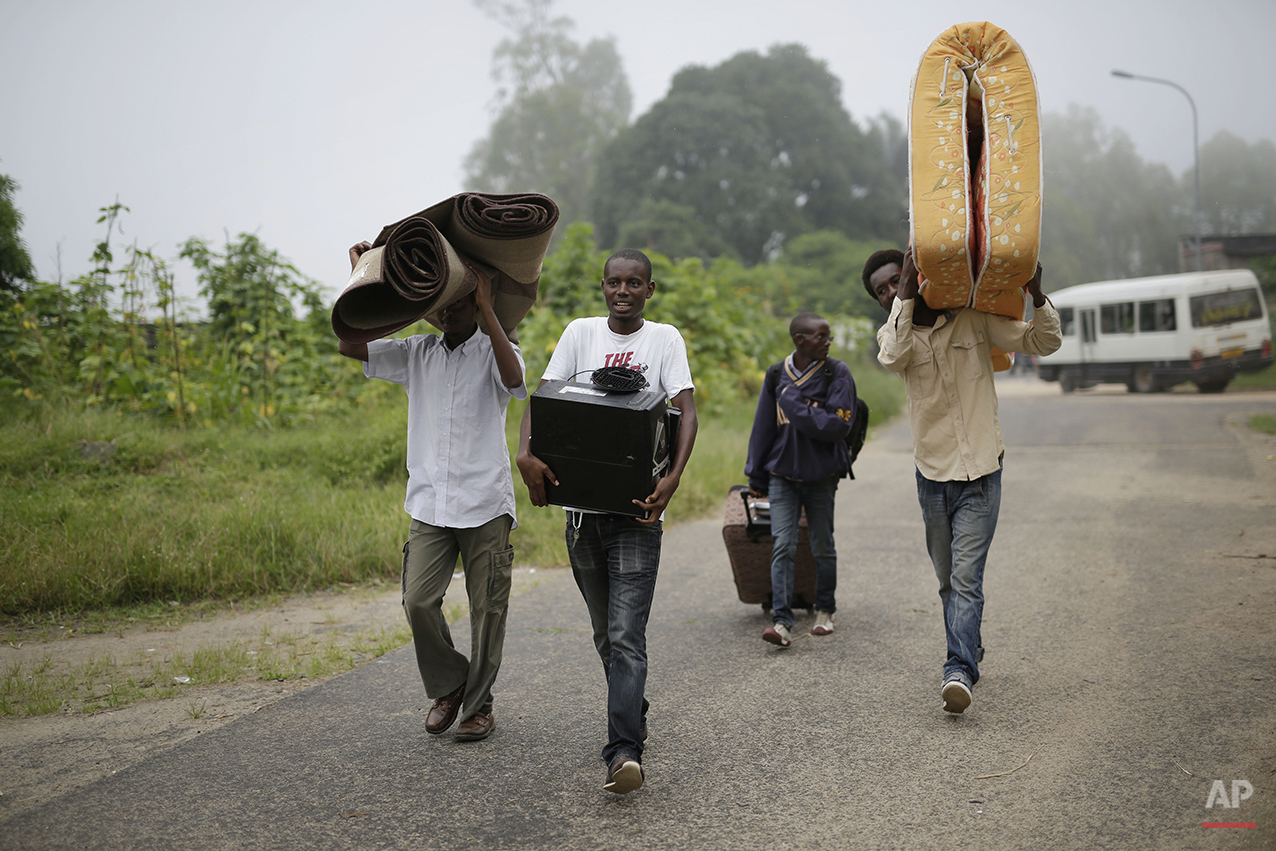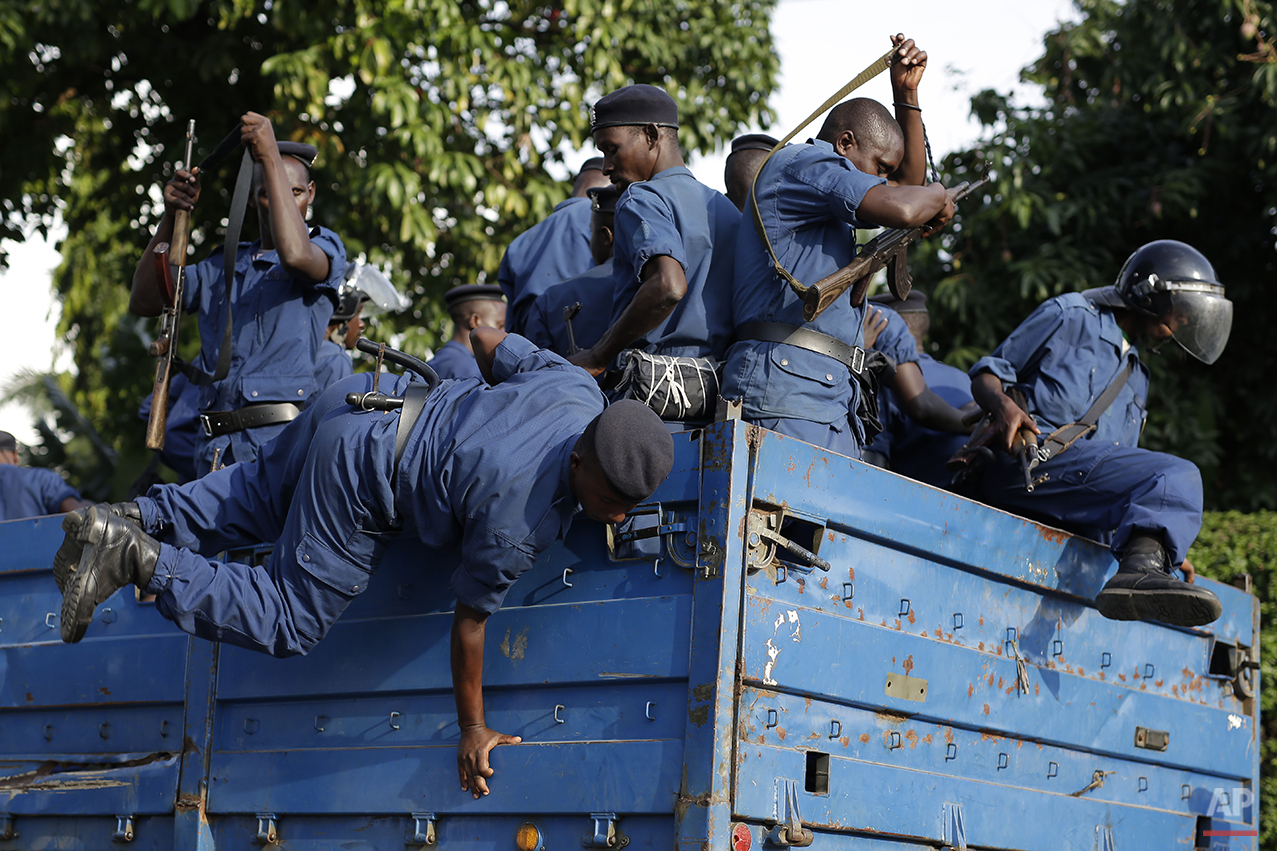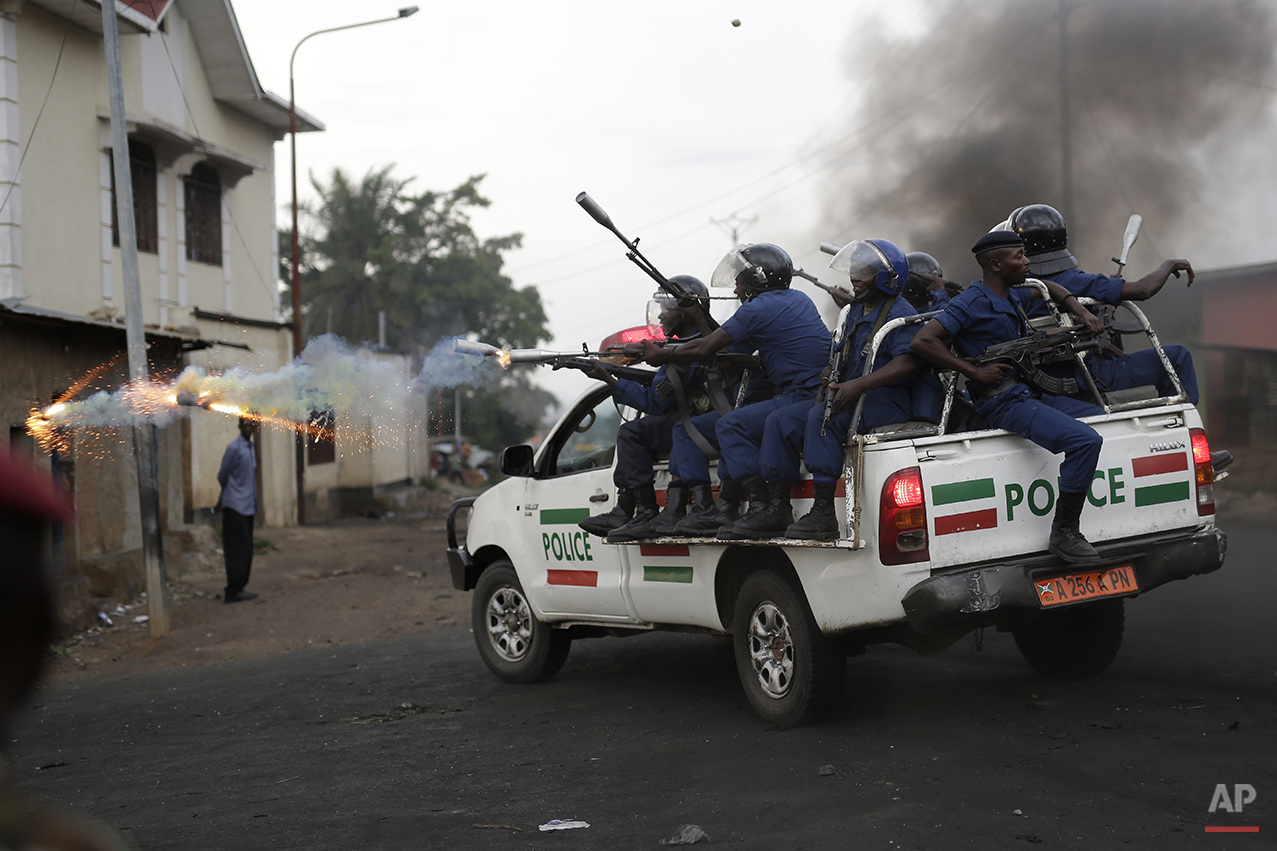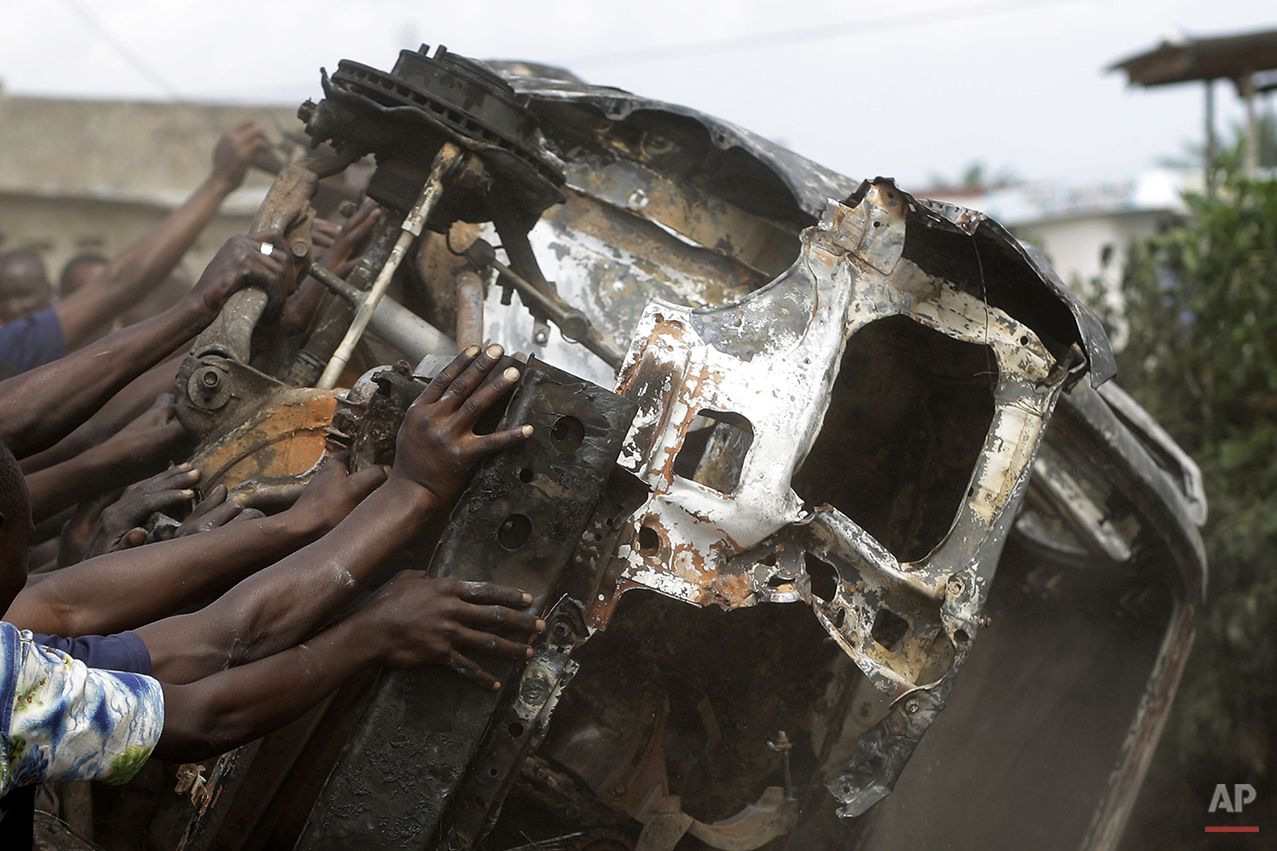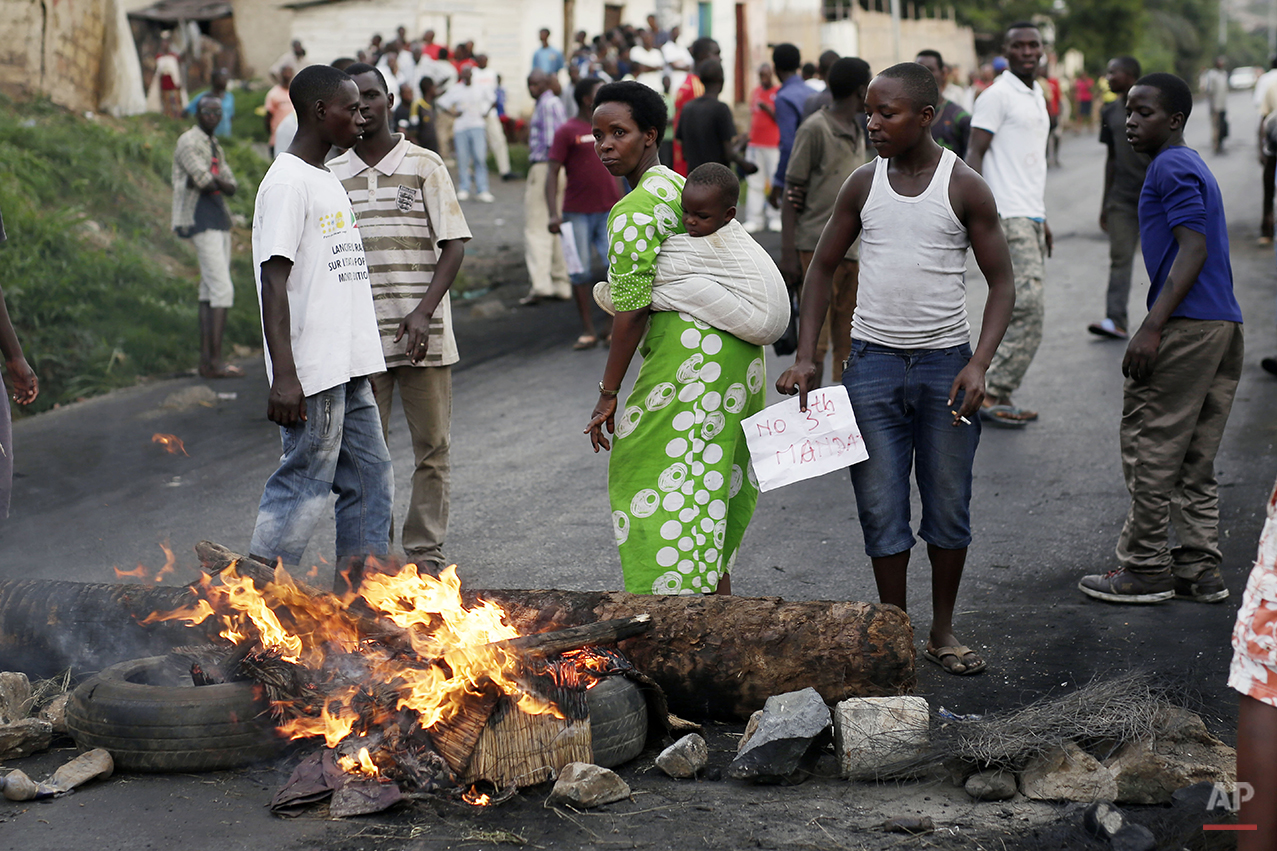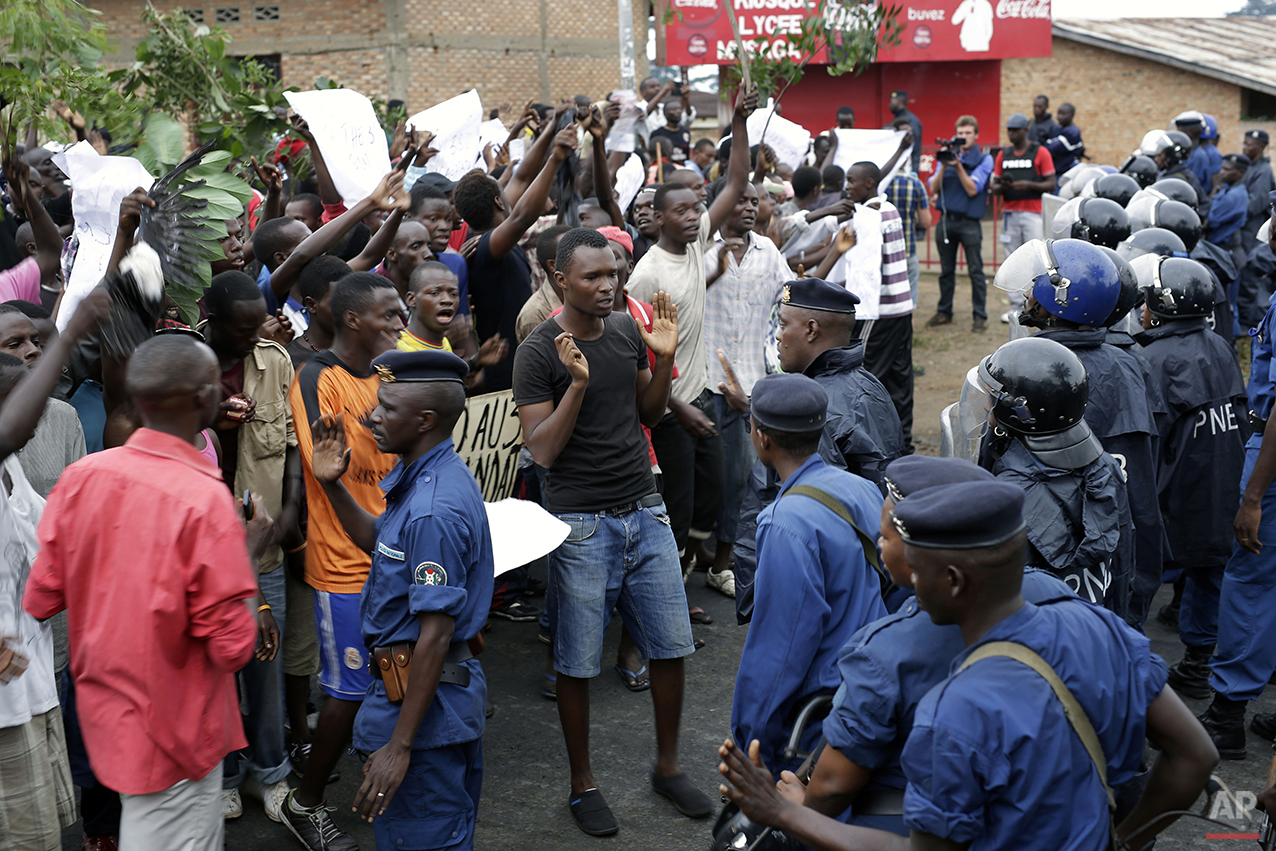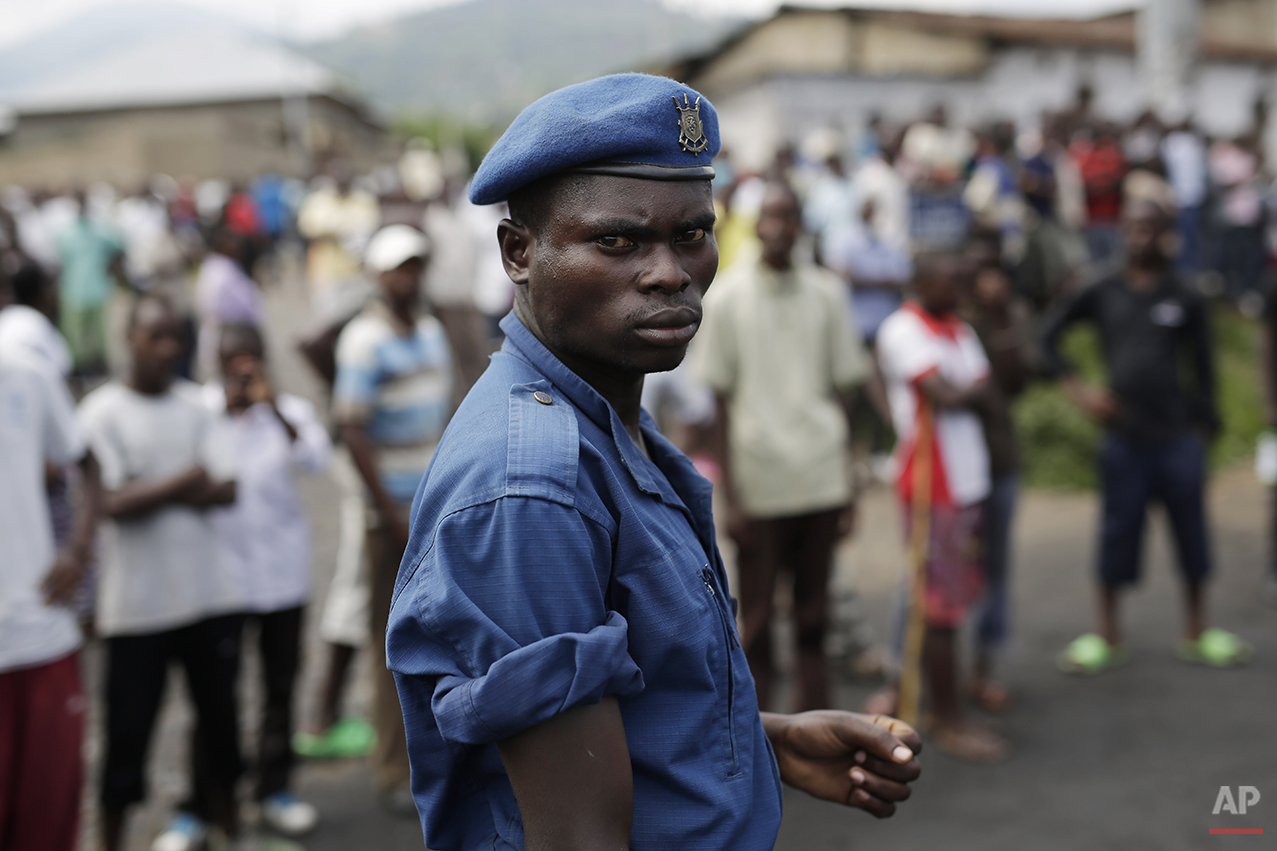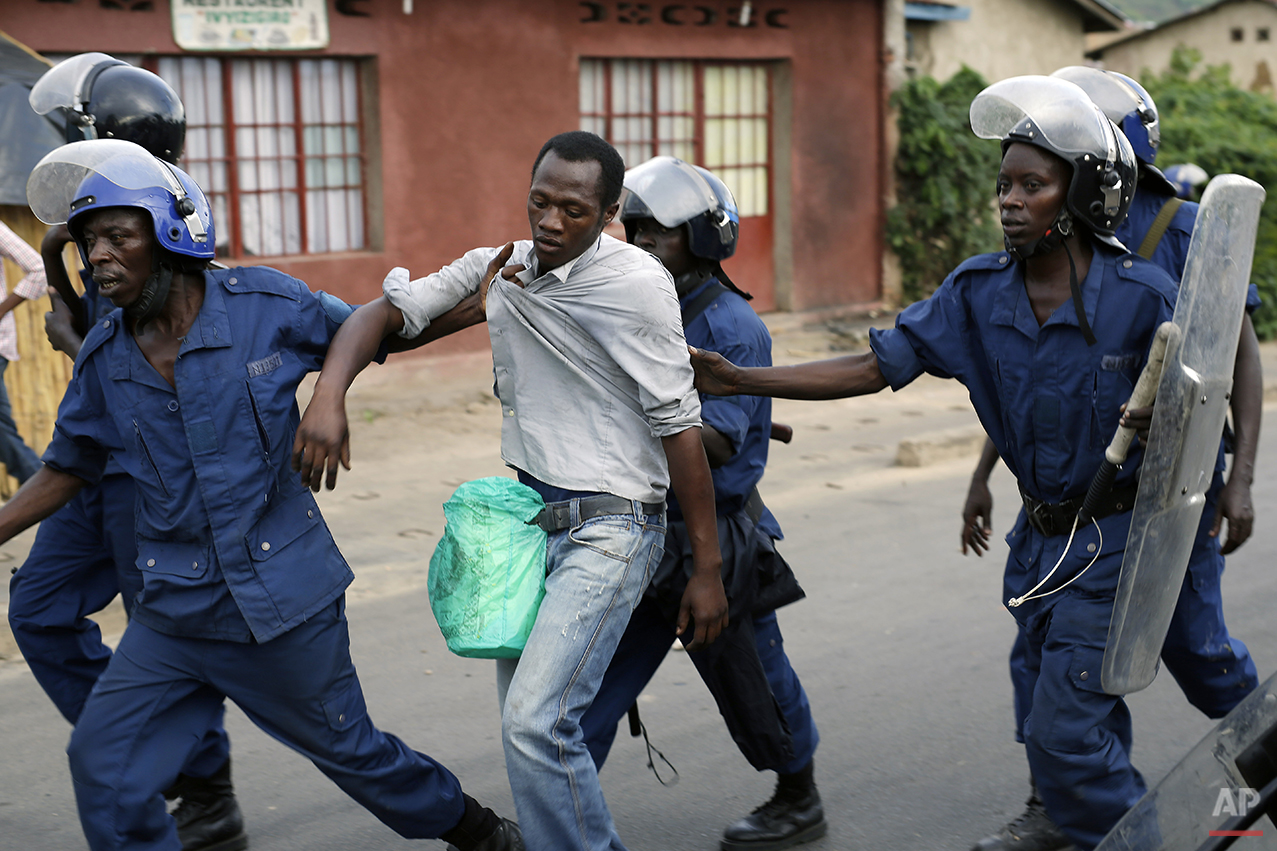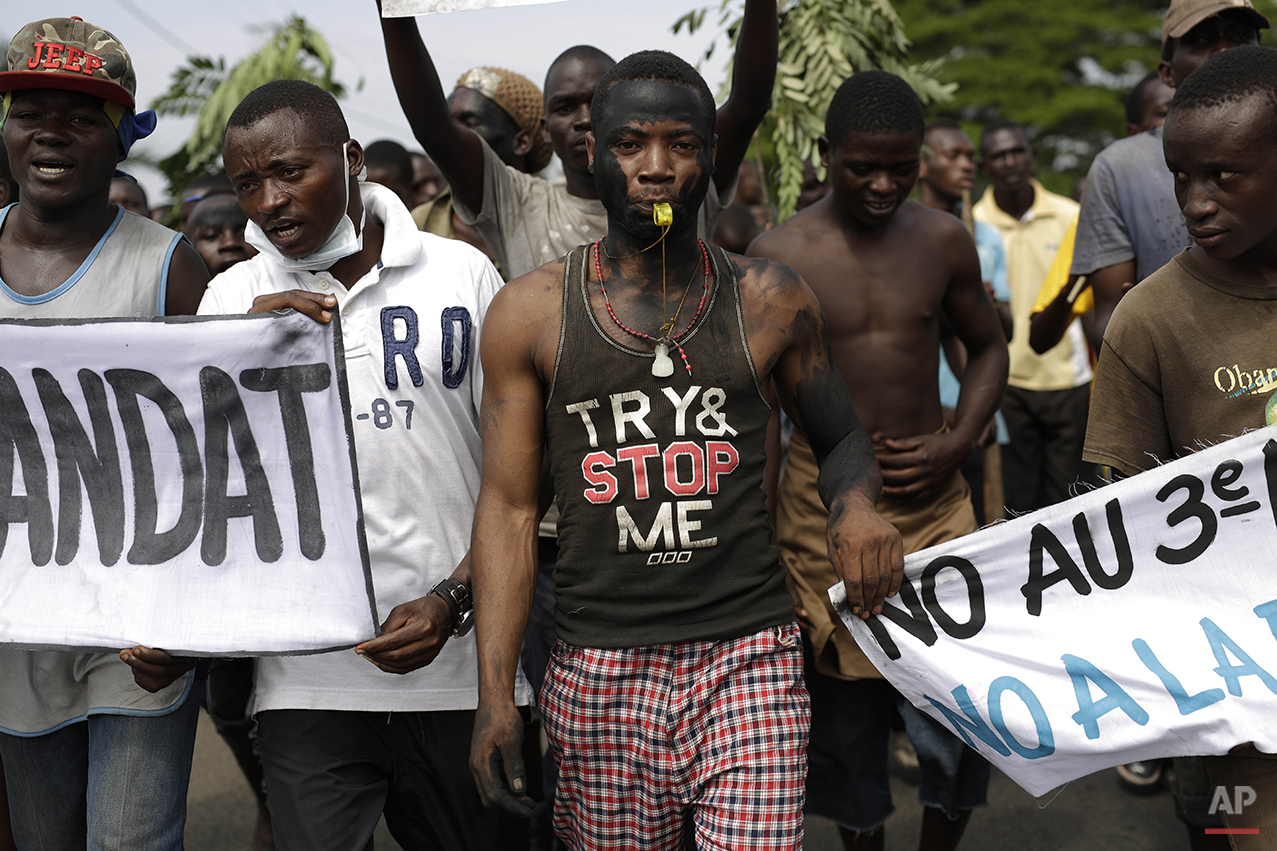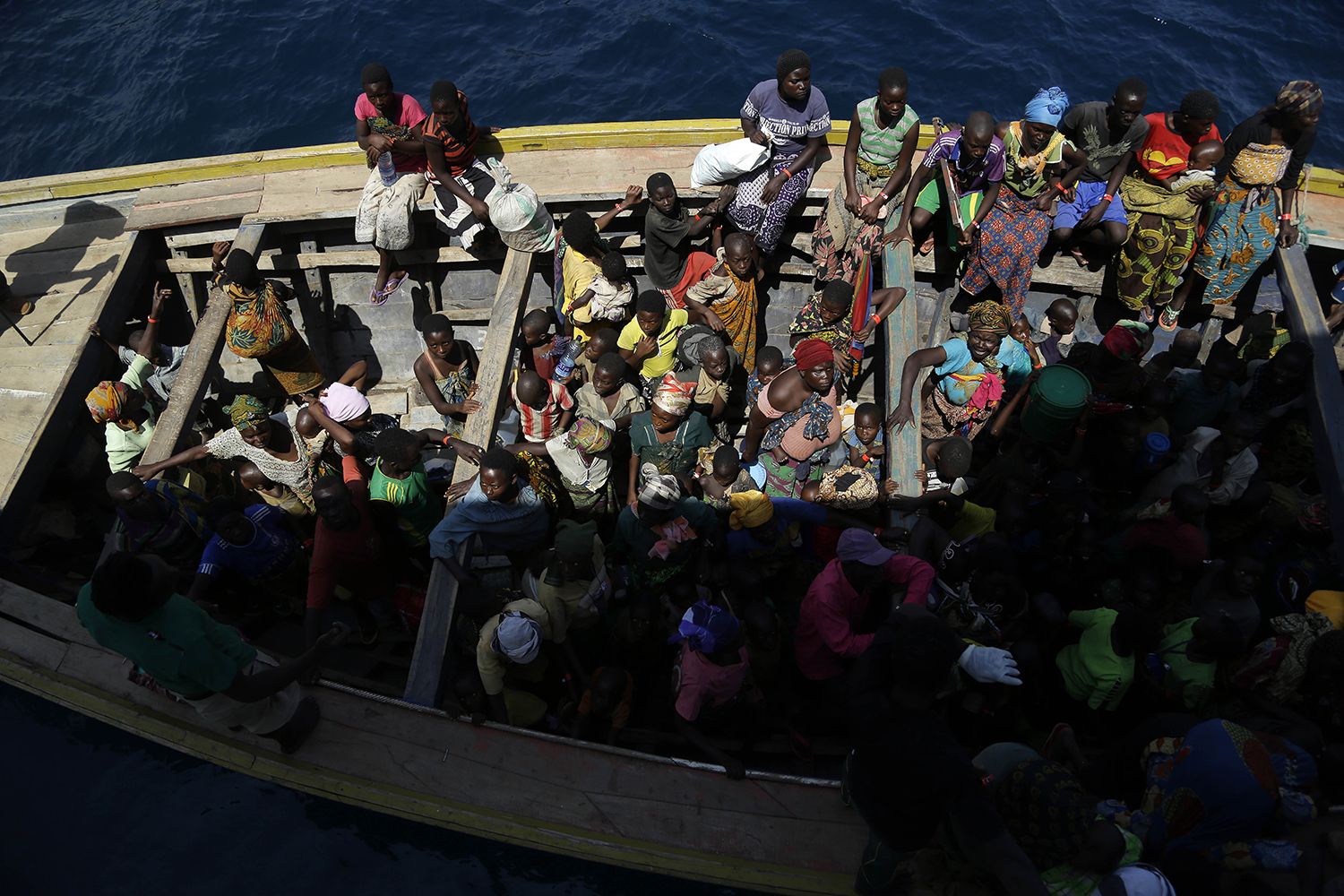Burundi's political tension
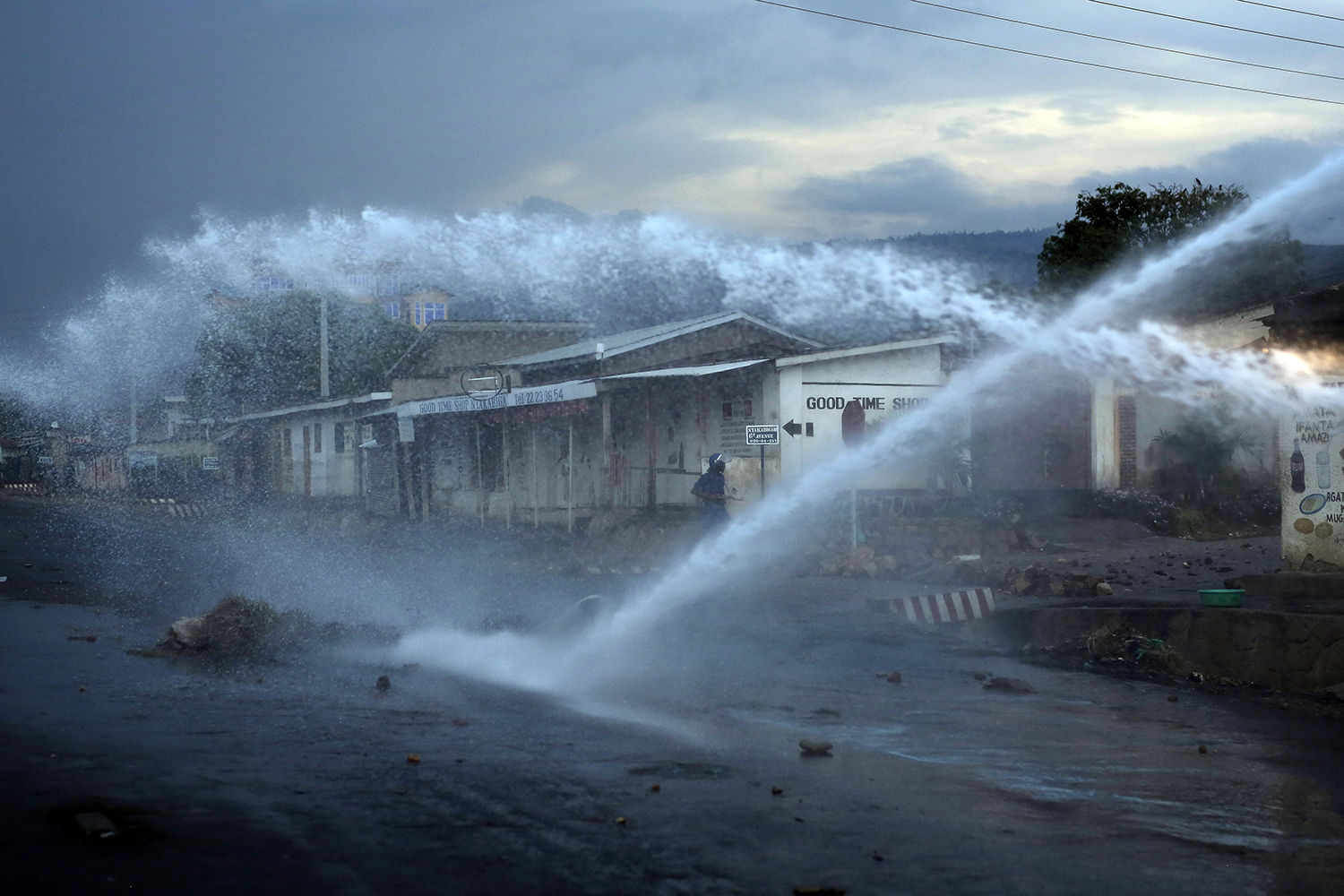
About 500 students spent the night outside the U.S. Embassy in Burundi's capital, asking the U.S. for protection as street protests against President Pierre Nkurunziza's decision to seek a third term went into went into their sixth day.
A State Department spokesman said U.S. officials had met with the students, commended their peaceful behavior and were not asking them to leave.
In the Musaga neighborhood, protesters marched past smoldering barricades Friday while brandishing sticks and metal bars. They tried to reach a major road but were stopped by a cordon of riot police. The demonstrators turned in their sticks, sang the national anthem and after a minute of silence marched back into the neighborhood.
Many protesters say they will not leave the streets until Nkurunziza withdraws his candidacy in the June 26 elections.
Families gathered outside a jail to bring food to those who have been arrested. Carina Tertsakian, a senior Rwanda researcher with Human Rights Watch, said Friday that more than 400 people are believed to be in detention as Burundi's government tries to stop the protests.
The protests started Sunday, a day after the ruling party nominated Nkurunziza to be its candidate.
Some events carried on as normal. At a local sports field, civil servants paraded in front of officials in a May Day celebration.
U.S. Assistant Secretary for Democracy, Human Rights, and Labor Tom Malinowski, who traveled to Burundi on Wednesday, told reporters that the government has been warned of "real consequences" if the crisis escalates.
Many see Nkurunziza's decision to run again as a violation of the Arusha Agreements that ended the civil war that killed more than 250,000 people. The fighting between Hutu rebels and a Tutsi-dominated army ended in 2003.
Nkurunziza, a Hutu, was selected by Parliament in 2005 to be president. He was re-elected unopposed in 2010. His supporters say he can seek re-election again because he was voted in by lawmakers for his first term, and was not popularly elected.
At least six people have been killed since last Sunday, according to the Burundi Red Cross.
A U.S. State Department spokesman, Jeff Rathke, told reporters in Washington that the U.S. embassy continues to encourage Burundi's government to reopen universities for the students. Rathke estimated that 600 students were outside the embassy.
"So, we certainly are urging that they have the opportunity to return to their studies, and we are not requesting that those students leave the vicinity of our compound as long as they remain peaceful and calm," the spokesman said.
Russia's ambassador to the U.N. confirmed Friday that his country had blocked a proposed Security Council statement on the crisis.
"It's not the business of the Security Council and the U.N. Charter to get involved in constitutional matters of sovereign states," Vitaly Churkin told reporters.
See more photos of Burundi's political tension
Follow Jerome Delay | Twitter: @jeromedelay | Instagram: jeromedelay
Text from the AP news story, Arrests Rise in Burundi Protests; Protests Vow to Remain, By Jerome Delay and Rodney Muhumuza
Spotlight is the blog of AP Images, the world’s largest collection of historical and contemporary photos. AP Images provides instant access to AP’s iconic photos and adds new content every minute of every day from every corner of the world, making it an essential source of photos and graphics for professional image buyers and commercial customers. Whether your needs are for editorial, commercial, or personal use, AP Images has the content and the expert sales team to fulfill your image requirements. Visit apimages.com to learn more.
Written content on this site is not created by the editorial department of AP, unless otherwise noted.
AP Images on Twitter | AP Images on Facebook | AP Images on Google+

